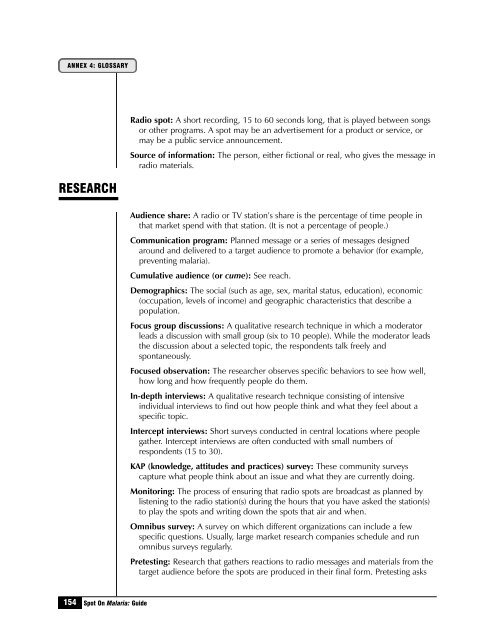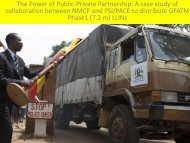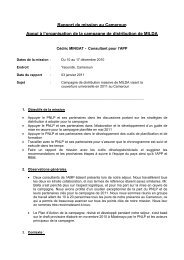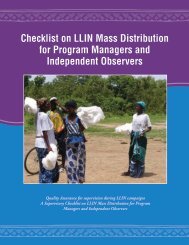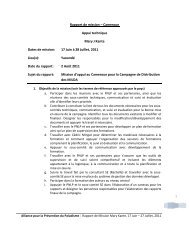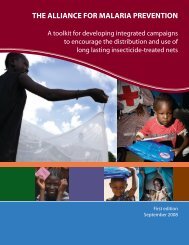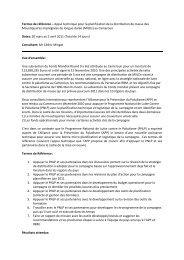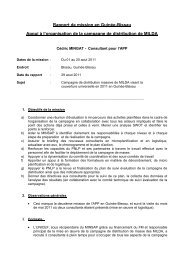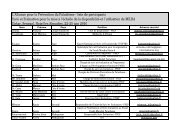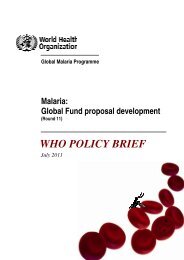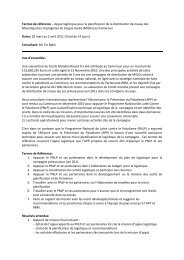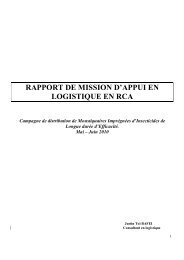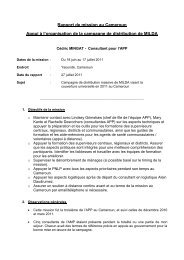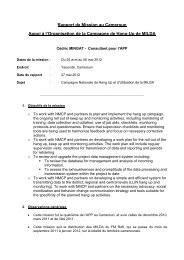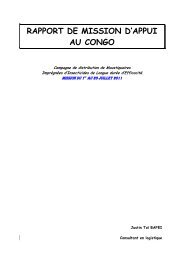Spots - Roll Back Malaria
Spots - Roll Back Malaria
Spots - Roll Back Malaria
- No tags were found...
You also want an ePaper? Increase the reach of your titles
YUMPU automatically turns print PDFs into web optimized ePapers that Google loves.
ANNEX 4: GLOSSARYRadio spot: A short recording, 15 to 60 seconds long, that is played between songsor other programs. A spot may be an advertisement for a product or service, ormay be a public service announcement.Source of information: The person, either fictional or real, who gives the message inradio materials.RESEARCHAudience share: A radio or TV station’s share is the percentage of time people inthat market spend with that station. (It is not a percentage of people.)Communication program: Planned message or a series of messages designedaround and delivered to a target audience to promote a behavior (for example,preventing malaria).Cumulative audience (or cume): See reach.Demographics: The social (such as age, sex, marital status, education), economic(occupation, levels of income) and geographic characteristics that describe apopulation.Focus group discussions: A qualitative research technique in which a moderatorleads a discussion with small group (six to 10 people). While the moderator leadsthe discussion about a selected topic, the respondents talk freely andspontaneously.Focused observation: The researcher observes specific behaviors to see how well,how long and how frequently people do them.In-depth interviews: A qualitative research technique consisting of intensiveindividual interviews to find out how people think and what they feel about aspecific topic.Intercept interviews: Short surveys conducted in central locations where peoplegather. Intercept interviews are often conducted with small numbers ofrespondents (15 to 30).KAP (knowledge, attitudes and practices) survey: These community surveyscapture what people think about an issue and what they are currently doing.Monitoring: The process of ensuring that radio spots are broadcast as planned bylistening to the radio station(s) during the hours that you have asked the station(s)to play the spots and writing down the spots that air and when.Omnibus survey: A survey on which different organizations can include a fewspecific questions. Usually, large market research companies schedule and runomnibus surveys regularly.Pretesting: Research that gathers reactions to radio messages and materials from thetarget audience before the spots are produced in their final form. Pretesting asks154 Spot On <strong>Malaria</strong>: Guide


